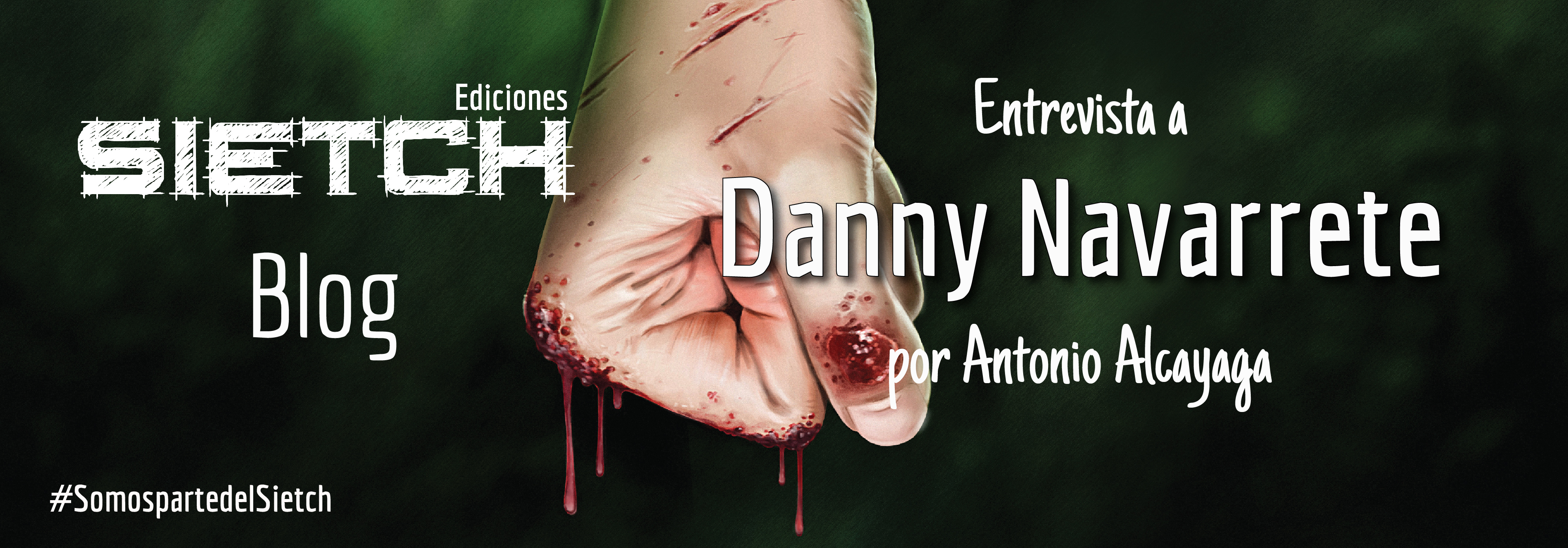

Danny Navarrete is a writer with extensive experience in the literary world. He has published several novels, such as Cielos (Skies), Summer (Summer), Valquiria (Valkyrie ), and others. He now has his latest science fiction novel, Venganza (Revenge), published by Sietch Ediciones.
-What led you to write Revenge?
A: Revenge is a kind of fanciful response to the frustration and helplessness faced with a crime rate that grows more and more rampant every day, while our judicial system seems increasingly inefficient. It was about putting on paper that feeling of rage felt by an ordinary citizen who repeatedly sees the many injustices and abuses in a society where very few have too many privileges, while the vast majority don't even have access to equitable justice.
There's a topic of discussion that frequently arises in everyday life: the criticism of the justice system, its functioning, which is always questionable, leading to conclusions that are more feasible and quicker, for example, the famous "taking justice into our own hands." Did you seek to reveal the shortcomings of the judicial system that currently exist in Chile with your novel?
A: Rather than revealing its shortcomings, the intention was to use them as a starting point for a story as realistic as possible within its own fiction. I wanted to take the disillusionment and distrust that many feel toward our limited judicial system and make it visible in the protagonist's feelings and way of thinking. I wanted to make her personify all the annoyance and growing disenchantment that a large portion of the population feels toward the institutions that should ensure our protection and safety.
Does our country's judicial system have anything to do with your novel?
A: First of all, the novel is set in a city and country that are never named, but which are easily identifiable with what we experience every day, even in neighboring countries. That said, the flaws, ineptitudes, and bias of a judicial system with which many people feel disillusioned play a very important role in the motivation of the main characters, because it is what triggers the story's conflict. However, they are not the main focus. The plot revolves around character development, their moral concerns, and their firm conviction to do "the right thing" at all costs.
-Are there any well-known cases in the country or, from fiction itself, any films, series, or books that have influenced you to want to address this topic (injustice) in your novel?
A: There are many cases, and unfortunately, they continue to happen every day. I could, to name just one, refer to the case of Ámbar, in which the man who murdered her had been convicted fifteen years earlier for the homicide of his ex-wife and son, and you think, "How is it that a guy like that is free? How is it possible that the young woman's own mother helped carry out such a horrendous crime? Those people deserve the punishments of hell." Well, in the novel, Venganza is hell for people like them.
Regarding the works I took as inspiration for the novel, the first and foremost is Batman Begins, although there are a long etcetera and some hidden or hinted references that I hope readers will be able to identify.
-Does your novel have any connection with the previous installments "The Road to Revenge"?
A: The Path of Vengeance comprises three short stories that take place right between the end of Vengeance - Astrea and the sequel. These are cases that will be mentioned in the novel, but they were originally intended to appear in comic format. However, due to time and workload, I preferred to publish them as short stories on my blog.
-What does Danny Navarrete's future hold?
A: I'm involved in several projects. I'm working on a fantasy saga titled "Amor Inmortal" with Spanish writer Laura Torneiro, with whom we're currently writing the third and final installment. I'm currently resuming "Requiem of the Heavens," which has two parts published on Amazon. And I'm still working on "Venganza," the second and third parts. I've also been writing short stories for various magazines, experimenting in the field of science fiction, which so far has earned me publications in El Narratorio, Letralia, and, between June and August, in Espejo Humeante.
Would you like to be able to turn "The Road to Vengeance" into a comic in the future?
A: It's an idea I've been putting off for quite some time, but I hope to see it come to fruition someday. In the meantime, I'm focused on the novels. I intend to, one day, expand the story in both formats, with intersecting plots, complementary stories, and different takes on the development of the main conflict. There's still plenty of Vengeance to come.
Do you think writing, like reading, has helped you cope with the pandemic?
A: For me, books have always been a way to escape from the routine. During the pandemic, I've put reading aside for a bit, but writing has served as my grounding wire to tolerate the monotony, confinement, and pressure of work. Writing is my switch to disconnect from reality.
Do you have any literary or television recommendations for your readers?
I had the pleasure of reading "The Leviathan Relic" by Andrés Suárez and I highly recommend it. As for television, I'm very out of touch, but I watched some "Invincible" and found it quite interesting. I know it's had very good reviews for its take on superheroes and the price of having powers, so I think it would be a good choice for a weekend getaway.

By registering at our shop, you will make more expedite the checkout process, you can add multiple shipping addresses, view and track your orders, and more. You can edit this text from: Themes > Theme Options > Blog